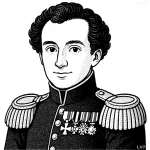“If we must not act save on a certainty, we ought not to act on religion, for it is not certain. But how many things we do on an uncertainty, sea voyages, battles!”

- June 19, 1623 – August 19, 1662
- French
- Mathematician, Physicist, Inventor, Philosopher, Theologian
table of contents
Quote
“If we must not act save on a certainty, we ought not to act on religion, for it is not certain. But how many things we do on an uncertainty, sea voyages, battles!”
Explanation
Pascal challenges the demand for absolute certainty in matters of faith by pointing out the inconsistency in how we live. If we required certainty before acting, we would never undertake risky or uncertain ventures, yet we routinely make major decisions—sailing into unknown seas, entering battles, choosing careers—without guarantees. So why should religion be held to a higher standard of certainty than these other vital and uncertain actions?
This argument is central to Pascal’s Pensées, especially within the context of his famous wager. He accepts that religious belief cannot be proven with absolute certainty, but insists that this does not make it unreasonable. In fact, many of life’s most meaningful choices are based not on certainty, but on risk, hope, and probability. The decision to believe in God, for Pascal, is a rational wager—a choice made in the face of uncertainty, but grounded in the weight of potential consequences.
In modern terms, Pascal’s point remains persuasive. We invest in relationships, careers, and ideals without knowing the outcome, guided by conviction, trust, and hope. His quote reminds us that the demand for absolute proof before committing to anything is both unrealistic and unnecessary. In the realm of religion—where the stakes are ultimate and the evidence is subtle—the rational thing may not be to wait for certainty, but to act wisely amid uncertainty, as we do in the rest of life.
Would you like to share your impressions or related stories about this quote in the comments section?



